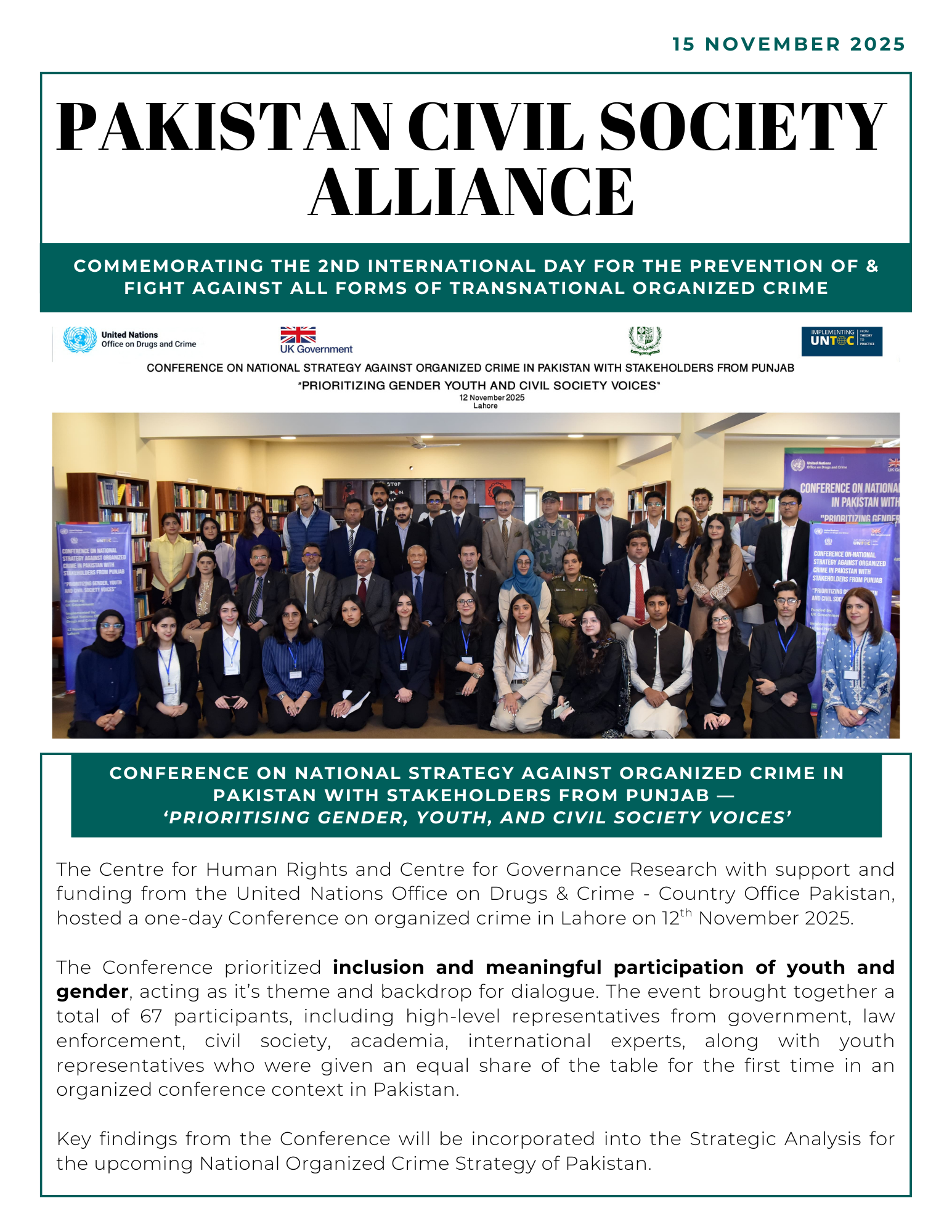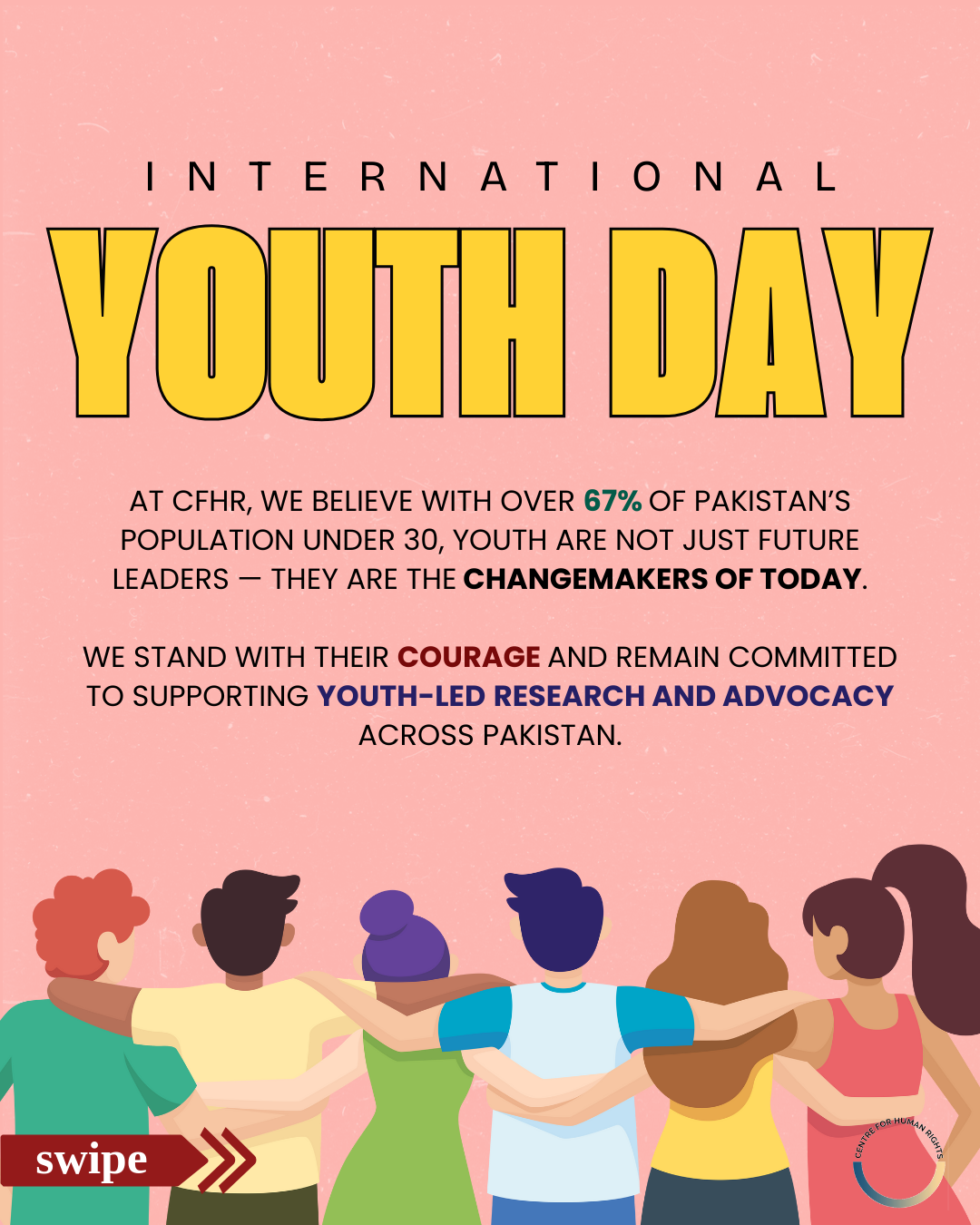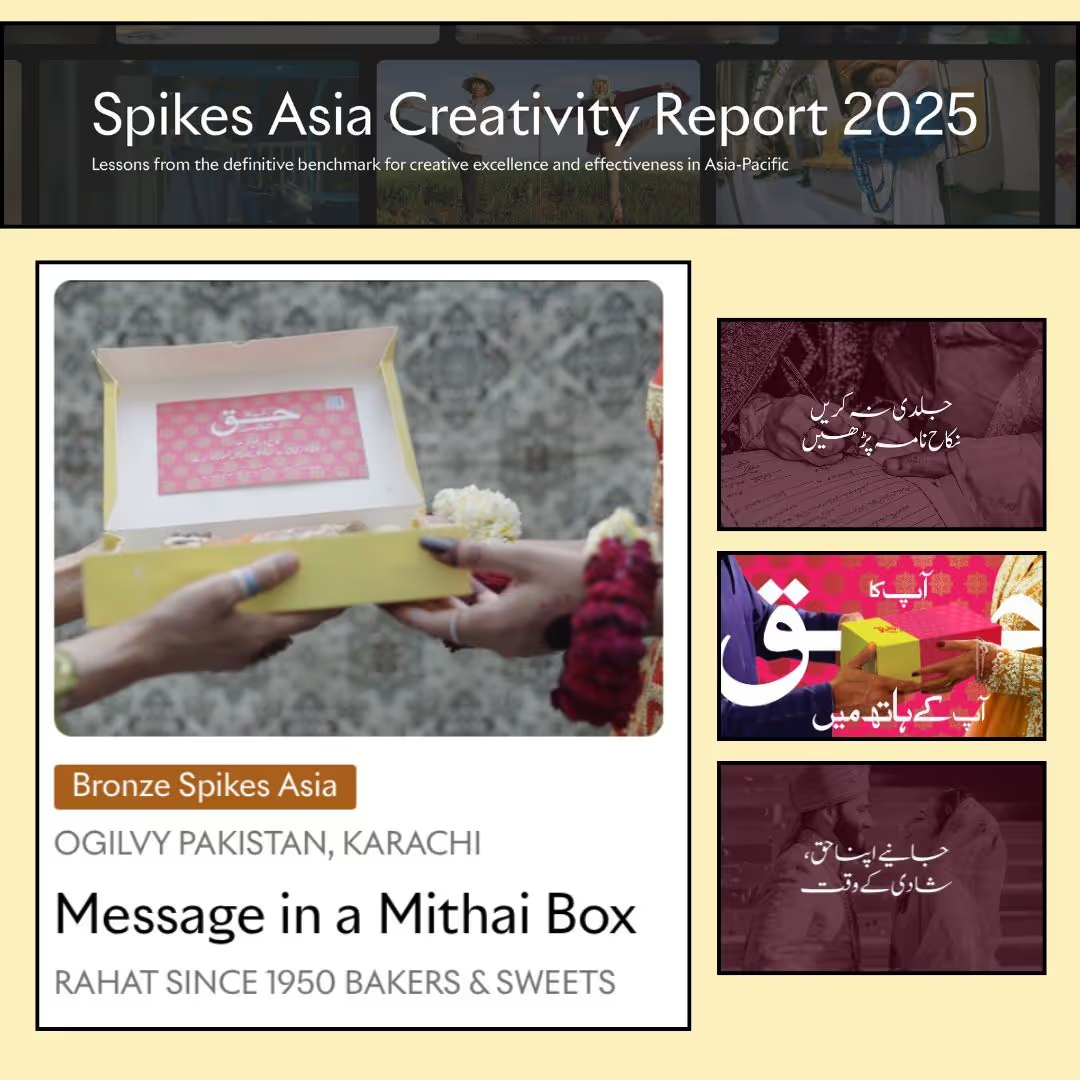
CFHR drives justice, equality, and systemic change through research, legal innovation, advocacy, and education.
Our work is rooted in five key focus areas:
- Governance, Peace and Security
- Human Rights and Social Justice
- Youth Engagement and Empowerment
- Climate Justice
- Technology and Artificial Intelligence.
We work to combat trafficking in persons, smuggling of migrants, and the illegal proliferation of firearms. At the same time, we promote fair trial rights and due process in Pakistan’s Anti-Terrorism Courts. Our efforts to advance human rights and social inclusion focus on issues such as gender-based violence, women’s marriage rights, transgender rights, refugee protection, and digital freedoms. Through legal aid, national campaigns, marriage rights clinics, a documentary, and a digital knowledge platform, we strive to protect and promote rights for all.
Our climate justice work examines how environmental challenges such as displacement and the impact of the 2022 floods affect vulnerable communities and the justice system. We advocate for rights-based, resilient solutions. Meanwhile, through our Institute for Responsible AI & Human Rights, we explore the intersection of technology and human rights, promoting ethical innovation that puts people first.
At CFHR, we believe knowledge fuels change. We have published eight volumes of the Human Rights Review, developed policy papers and research reports, launched award-winning campaigns, and supported legal fellows. Our clinical legal education programme, moot courts, and specialised trainings prepare the next generation of human rights defenders with the tools and experience they need to lead.
Across all areas, we collaborate with national and international partners to influence policy, strengthen legal protections, and empower communities. Our work is grounded in evidence, shaped by inclusion, and driven by a commitment to lasting impact.

Commemorating the 2nd International Day for the Prevention of & Fight Against All Forms of Transnational Organized Crime
Event report on CFHR, Centre for Governance Research and the United Nations Office on Drugs & Crime - Country Office Pakistan one-day Conference on organized crime in Lahore on 12th November 2025.

International Youth Day 2025
On International Youth Day 2025, CFHR commemorated Pakistan’s most powerful force for change — its youth. With over 67% of our population under 30, young people are not waiting for tomorrow; they are reshaping justice, rights, and equality today.

"Message in a Mithai Box" Campaign wins the Bronze Spikes Award
The "Message in a Mithai Box" campaign earned Bronze at Spikes Asia 2025, our second international honor after ranking 5th globally at SABRE Awards 2024. This Ogilvy Pakistan initiative empowers women with Nikahnama rights information through QR-coded cards in sweet boxes.

Constructive Dialogue on Firearms 2025
At UNODC’s 2025 Firearms Dialogue, CFHR spotlighted civil society’s role in tackling arms trafficking through inclusive policy, youth engagement, and regional cooperation.

Newsletter 2025 - Q1
Welcome to the first edition of CFHR’s Quarterly Newsletter, marking a new chapter in how we share our journey, impact, and vision.

Regional Workshop on Non-governmental Stakeholders’ Engagement in Practical Application of the UN Convention against Transnational Organized Crime
Ms. Seher Aftab attended a UNODC workshop in Malaysia on January 15-17, 2025, focusing on UNTOC implementation, and helped establish the Civil Society Regional Network for Asia (NET4U). CFHR, where Ms. Aftab works, will coordinate NET4U Asia's activities.

Climate Displacement Clinic (Ongoing)
The clinic documents challenges faced by women and girls due to climate displacement, focusing on their rights and vulnerabilities. Clinic students contribute through research, policy analysis, and advocacy to protect these women and girls.

Kaante Na Lagao Campaign
In Pakistan, 99% of women lack at least one key marriage right in their Nikahnama. The #KaanteNaLagao campaign, launched by CFHR, Fahad Hussayn, and Mashion, combats this by raising awareness and advocating for women's rights within marriage contracts.

Training & Learning Module WMRs in Pakistan
CFHR empowers educators with a comprehensive toolkit to teach women’s marriage rights through the Nikahnama via lessons, activities, and legal guides.
.avif)
Training Needs Assessment - Summary Findings Report WMRs
The report explores youth knowledge and attitudes on women’s marriage rights, revealing legal gaps and social norms from over 1,300 surveyed nationwide.

WMR Cards Against Humanity
CFHR’s legal card game uses humor and teamwork to teach women’s marriage rights in Pakistan, from Nikahnama to divorce, in a fun, memorable way.

Nikahnama Training-of-Trainers Curriculum
The Centre for Human Rights, with the Council of Islamic Ideology, offers a Training-of-Trainers Curriculum on Pakistan's Nikahnama, empowering Nikah Registrars with legal and Islamic insights on marriage rights.

Training-of-Trainers (ToT) on the Nikahnama
CFHR and CII conducted a Training-of-Trainers program in Islamabad on the Nikahnama, equipping 30 religious officials to train others on proper marriage contract documentation, protecting spousal rights, and fulfilling legal obligations under Islamic law.

Civil Society Declaration Against TOC [Pocket Edition]
The Civil Society Declaration against Transnational Organized Crime champions civil society's crucial role in combating global crime, advocating for enhanced implementation of UNTOC, human rights, and victim-centered approaches.

International Day for the Prevention of and Fight against All Forms of Transnational Organized Crime
On November 15, 2024, a roundtable event on transnational organized crime was held, bringing together 31 in-person and 86 online participants. The event concluded with the unveiling of the Civil Society Declaration, emphasizing collaboration to combat organized crime.

Transnational Organised Crime
This info sheet offers a clear overview of transnational organized crime, detailing cross-border networks, key offenses, and the need for global cooperation.

Handbook on Women’s Marriage Rights Legal Aid & Advocacy Clinics in Pakistan
This handbook helps law professors in Pakistan establish legal aid clinics focused on women's marriage rights. It covers clinical legal education, practical skills, and substantive issues for clinic setup and training.

Implementing Women's Marriage Rights in Legal Aid & Advocacy Clinics in Pakistan
CFHR advances women's rights via clinical legal education, training faculty nationwide on marriage rights clinics & launching a handbook for legal aid.
.avif)
Know Your Rights Student Workshops
CFHR and Musawi empower youth through 31 Know-Your-Rights workshops on women’s marriage rights across Pakistan, reaching 942 students with interactive learning.

Preventing Smuggling of Migrants from Pakistan to Malaysia (2024)
CFHR's report on Pakistan-Malaysia migration analyzes trends, abuse, and policy gaps, offering recommendations to improve legal pathways and reduce irregular migration.

Rights and Delights Campaign
CFHR, with Rahat Bakers and Ogilvy, launched the Rights & Delights campaign to raise awareness of women’s marriage rights during wedding season.

Panjnad International Moot Court Competition 2024
CFHR's Panjnad International Moot Court Competition in 2024, with ABA ROLI & Universal College Lahore, saw 27 diverse teams debate family laws & women's rights.

16 Days of Activism Against Gender-Based Violence 2023
In 2023, CFHR's #InvestToEnd campaign promoted stronger laws, accessible services, and safer environments to combat gender-based violence, reaching over 32,000 people. Initiatives included social media awareness, a bake sale, a seminar on child marriage, and the HeForShe campaign.

UNODC Constructive Dialogue on Trafficking in Persons
On October 4, 2023, CFHR participated in the UNODC Constructive Dialogue on Trafficking in Persons, emphasizing civil society's role in combating trafficking and advocating for evidence-based tools and community-based initiatives. CFHR highlighted the need for effective anti-trafficking measures responsive to vulnerable populations, particularly women and children.

Dissolution of Marriage in Punjab: The Cost of Divorce for Muslim Women
This report examines women's access to justice when dissolving marriages in Punjab, focusing on four methods: talaq, khula, delegated divorce, and mutual divorce. The research, conducted in Lahore and Pakpattan, used both quantitative and qualitative methods.
Local Action, Global Impact
We work across Pakistan, driving legal reform, advocacy, and policy change to protect human rights and empower communities.
